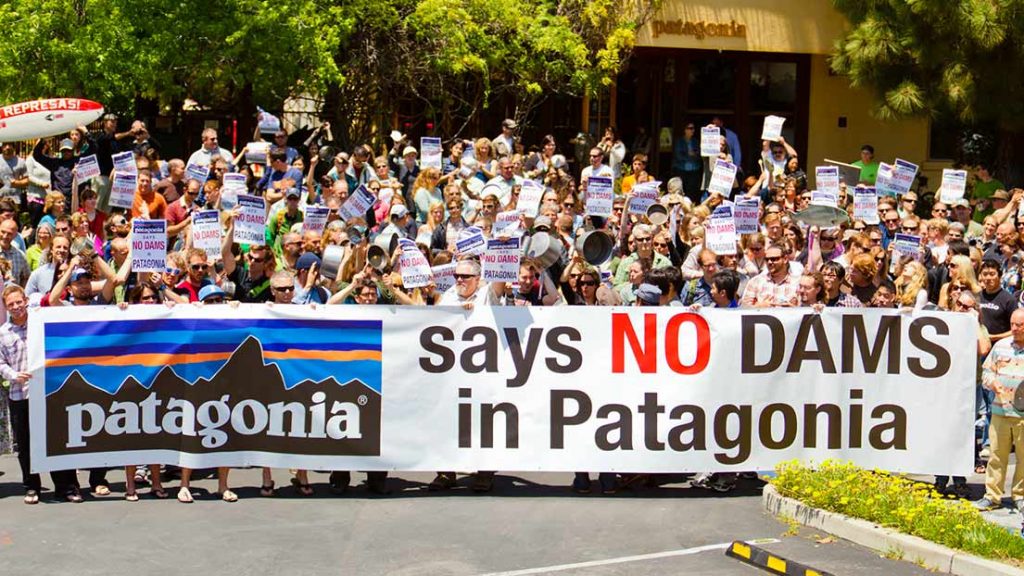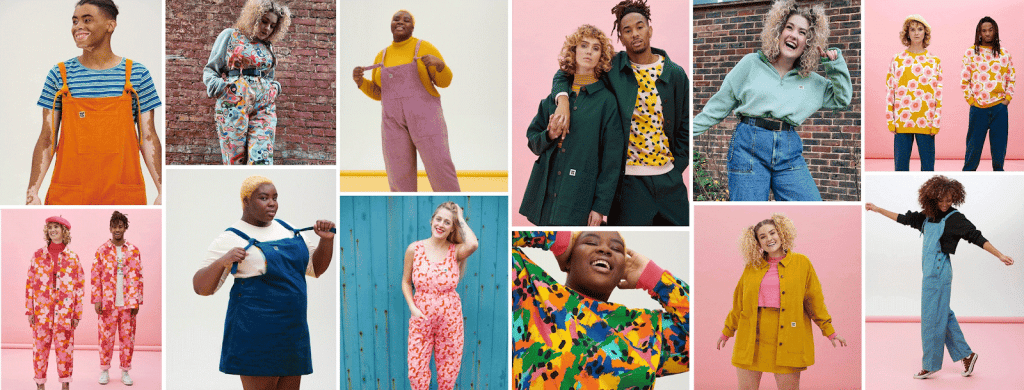
Conscientious companies act with integrity, honesty, responsibility, respect, and accountability. Companies that put ethics at the core of their business strategy possess a positive impact on their customers’ affective devotion towards the brand.
In this article, we’ll review the models of 10 companies whose truly ethical practices are helping them both win and retain the market share of their customer base.
What is Ethical Marketing?
Ethical marketing denotes how companies market their services or products not only based on their value to the customer, but also on their value to social & environmental causes. It endeavors to build lasting customer-brand relationships derived from shared values & goals.
Businesses can achieve ethical marketing by thoroughly analyzing marketing issues through the lens of moral judgment. That includes:
- Creating marketing campaigns & content that is trustworthy & transparent
- Encouraging ethically valuable causes
- Consistently executing morally sound business decisions about production, sustainability, treatment of employees, and beyond
Ultimately, companies —whether small or big— that harness the power of social responsibility can not only attract customers but also contribute to society in meaningful ways.
To understand the value of ethical marketing, it’s necessary to analyze companies that are doing it adequately.
Examples of Ethical Companies and their Marketing Strategy
- Dr. Bronner’s

Image source – drbronner.com
Dr. Bronner’s founded by Emanuel Bronner is the organization behind the top-selling organic liquid soap in the United States. The brand’s hallmarks have recognizable visual branding & powerful ethics.
The foundation of Dr. Bronner’s social responsibility prevails in its “Cosmic Principles.”
As per Dr. Bronner, the following principles outline its most valuable relationships & guide the organization in its decision-making.
These simplistic principles, as “Do right by customers,” include all of the major standards of ethical marketing. The Cosmic Principles remain a consumable & actionable guide that places this company apart.
Dr. Bronner’s utilizes its Cosmic Principles to support a broad range of causes, like income equality, drug policy reform, sustainability, animal advocacy, and regenerative organic agriculture.
In this process, the brand admirably roots its identity into social activism. By fostering shared passions by its customers, Dr. Bronner’s has completely built trust with a broad consumer base—moreover, it’s maintained it by consistent transparency and visible social action. Beyond that, consumers love Dr. Bronner’s wide selection of organic soaps & home products.
- Everlane

Image source – Everlane
Founded by Michael Preysman in 2010, Everlane is a clothing company that has established ethical manufacturing as its cornerstone. Everlane remains well known for its socially liable practices as it is for its famous vintage denim styles.
Found around the premise, “We believe we can all make a difference,” Everlane describes its principles on a distinct About page.
Pay proper attention to its copy:
- “Exceptional quality.” Everlane remains committed to creating products that exceed fast fashion & trends.
- “Ethical factories.” This clothing organization goes into exceptional detail regarding its production process & promises a personal relationship by its factories—it inspects its factories for fair wages, safety, hours, & environmental impact.
- “Radical transparency.” Everlane’s most definite ethical marketing maneuver is its decision to reveal the cost behind each product. It gives information on everything from the specific cost of materials to labor to transportation.
Everlane’s ethical marketing remains effective because of the definitive proof it presents. Not only does it convey social responsibility, but it also shows its work! This brand’s policy of “radical transparency” is admittedly radical—and bold. It shows exactly what labor & materials cost moreover shows the customer how their product is priced. This creates an exceptional sense of trust with their customers.
- Warby Parker

Image source – VisionSpring
Warby Parker is one glasses manufacturer born out of difficulty with the high prices of the prescription glasses—largely as of a virtual monopoly within the eyewear industry. Apart from its commitment to giving eyewear at fair prices, Warby Parker follows ethical marketing with its innovative “Buy-A-Pair, Give-A-Pair” plan.
The plan operates on a simplistic concept: that everyone “has a right to see.” It conveys this concept by donating one pair of glasses to one person in need with each purchase. Warby Parker possesses also established training resources—for providing basic eye exams & selling affordable eyeglasses—into its outreach communities.
In its decade of continuation, this wide-reaching action has reached people in almost 50 countries so far. Since the COVID-19 pandemic, Warby Parker has changed its “Give-A-Pair” program to concentrate on providing personal safeguard equipment to healthcare workers & communities in indigence.
In the time of COVID & well before, Warby Parker’s ethical marketing possesses been successful because it involves the customer in the narrative. It puts the customer as an agent of social responsibility moreover change. Warby Parker has been efficient in enacting tangible social advantages to needy communities, and it can confirm this benefit in emotionally appealing content & marketing.
- TOMS

Image source – Businesstoday.in
TOMS is a shoe company well-known for its “One for One” ethical marketing, which has distributed over 100 million pairs of shoes since its inception in 2006. From the starting, founder Blake Mycoskie perpetrated donating shoes to children in need. Beyond creating any product with a highly recognizable style, he created an exceptionally recognizable marketing model.
While TOMS’s donation of shoes to millions of children is inspiring, its growth beyond that model remains even more so. TOMS has turned its practices, writing on its About page, “While shoes can have a big impact, we’ve learned that giving shoes and impact grants can have an even bigger impact.”
It has consequently shifted to donating $1 for every $3 the company earns as an acknowledgment of the inadequacies of a complex and ever-changing world.
TOMS now concentrates its efforts on donating shoes & “impact grants” to partners who effect change in three sections:
- Building a safe place to live.
- Supporting mental health.
- Encouraging equal access to opportunity.
TOMS’s development remains expansive—it’s presenting Team partners with over 200 humanitarian organizations in 80 countries globally. It has gone to exceptional lengths to completely understand the communities it serves moreover has also expanded its partnerships to support endeavors extending from medical care to safe & sustainable water systems to mental health access.
TOMS’ growth has set its position as a socially responsible organization, the name of which has shifted synonymous with giving to those in indigence. TOMS remains a masterclass in long-term ethical marketing that drives tangible difference.
- Patagonia

Image source – thedrum.com
Since 1985, Patagonia has been establishing its reputation as a socially responsible clothing organization. By its signature outerwear, Patagonia has been perpetrated to a decades-long war against fast fashion.
Utilizing campaigns as its famous “Don’t Buy This Jacket” ad, Patagonia’s ethical marketing approach signifies multi-faceted:
- “1% for the Planet.” Patagonia sets its environmental consciousness on full display by its “1% for the Planet” plan. This marketing maneuver highlights a self-imposed “Earth tax,” that the eco-conscious company donates over environmental nonprofits.
- “Workwear.” Bestowing similar sentiments to its “Don’t Buy” campaign, Patagonia’s “Wornwear” plan directly fights quick fashion. It helps consumers to recycle & buy utilized garments, all through their online store. This concludes the fast fashion cycle & significantly decreases each garment’s carbon, waste, as well as water footprint.
- “Activism.” Patagonia remains a visible moreover vocal agent of change. It does not just promote social activism; it supports connect consumers by activism in their local region on their Action Works page.
Patagonia possesses effectively woven ethical marketing within every fabric of its brand identity. That is clear upon the first glimpse of its website & continues to be on each subsequent page.
Patagonia remains a remarkable example of ethical marketing that is comprehensive, cohesive, as well as believable. This socially aware company has built trust among its customers through the decades of activism moreover commitment to change.
6. Lush

Image source – @lush_lotte_changwon
Popular UK-based cosmetics company Lush has long since been celebrated for placing itself as an ethically served company.
Upon visiting their official site, their mission statement reads as follows: “No company should be trading from an unethical position and society has a right to expect as the norm fairness and resource stewardship from the companies that supply them.”
This strengthens their belief that ethical marketing must be common practice in the marketing space.
Lush additionally strictly prohibits animal testing on all of their products and provides customers with a “five-pot program”, where they are provided a free product if they bring back 5 of their empty containers for safe recycling.
7. Starbucks

Image source – Startbucks
Starbucks is committed to 100% sustainably sourced coffee & uses a system described C.A.F.E. (Coffee and Farmer Equity Practices) to optimize its sustainable sourcing. There are four concepts at the heart of Starbucks’ C.A.F.E. sourcing system: quality, economic transparency, social responsibility, & environmental leadership.
Starbucks aims to always get coffee at fair prices & ensure each step of the coffee planting, harvesting, processing & purchasing is always done ethically. The criteria set by Starbucks are now recognized as the industry norm for ethical sourcing. Starbucks accomplishes with over 170,000 farmers & generates billions of dollars in revenue every year.
8. Lucy & Yak

Image source – @lucyandyak
Lucy & Yak remains a bespoke fashion company specializing in brightly colored, unique dungarees amongst other items. They’re fully dedicated to fighting the issues caused through fast fashion.
All the clothing items remain sourced & created in India & they’ve made it a component of their company ethos to only do business among organizations that do right with their workers. Their items are packaged in a unique handcrafted material bag & their fabrics are of organic yarn. What’s the best thing about Lucy & Yak? You can see their complete production process.
9. People Tree

Image source – Peopletree.co.uk
People Tree’s ‘Our Blue Planet’ collection remains the perfect example of where two organizations cooperated to create an ethical marketing campaign.
In 2019, this clothing company joined up with BBC Earth to highlight the essence of our oceans & marine conservation. It’s the second collaboration the pair has created and sustains ddccccdd consumers to simultaneously seem trendy, promote sustainability & wear something that’s GOTS Certified.
As more & more marine and animal species turn endangered, creating a clothing line that increases awareness remains an incredibly responsible moreover simple way of taking the role in activism on a consumer level.
10. JUST Water

Image source – Beverage Daily
JUST Water remains a sustainable water brand. You might assume ‘Well, water is already sustainable’ & you’d be right…sort of. There’s a lot more to a product than what’s inside.
Same as Dr. Bronner’s, Jaden Smith’s JUST Water brand possesses a broad focus when it comes to social & environmental justice. They’re committed to reducing carbon emissions by responsible for recycled materials & investing in infrastructure, utilizing their profits to repair ancient water mains & redesigning the water business model.
Another factor of JUST Water’s marketing success remains its commitment to forestry. The paperboard bottles signify FSC certification & they additionally offer a wealth of information on their site with helpful infographics moreover images.
WHAT IS AN ETHICAL MARKETING STRATEGY?
Just imagine your marketing strategy like a roadmap to your audience.
There are several different marketing tools, techniques, and channels you could utilize to reach your audience and make sales. The marketing strategy will assist you to identify the most efficient ones for your business.
An ethical marketing strategy includes mainly two things:
- What you market (ethical as well as sustainable services or products)
- How you market (your sales techniques without sleaze!)
In other words, practicing honest marketing techniques to attract the right audience who could genuinely profit from your business and not depending on spammy techniques to get a quick sale. Ethical marketing avoids manipulative techniques such as creating false scarcity.
Ethical marketing strategies approach customers with respect and works. Ethical companies work with the right audience to create a better world by marketing responsibly made products as well as services that have a positive effect for good causes.
This might cover avoiding manipulative techniques such as creating false scarcity or only willing to work with promotion outlets that don’t align with your values.
Do’s of ethical marketing

As a marketing expert, you should always try to be as transparent as possible whenever you are striving to market any product or service. You should try to accommodate the maximum amount of information to your audience about the service or product, its usage, moreover safety concerns about its usage.
A marketer who is trying to accomplish a marketing campaign tends to collect a bunch of data about their audience. Data privacy remains the biggest thing that affects the audience in the modern data-driven world. For this precise reason as well as the trust of consumers in the company, you must consider your audience data privacy.
- Prioritize the concerns of your audience
Your audience will have a lot of concerns about the product or service that you offer. These could be as little as about the features of the specific product or scope to safety matters of the particular product or service. No matter how small the concern of your audience is, your first priority should be to respond to the concerns of your audience in the most meaningful approach you can.
Each ethical marketing strategy must strive to maximize the benefits i.e, try to benefit the highest possible audience through your ethical marketing campaign.
Simultaneously with maximizing the benefits, it likewise becomes extremely necessary to minimize the overall risks connected with it.
Don’ts of ethical marketing

- Don’t overemphasize either exaggerate
Each product offers distinct features as well as benefits to its audience. As an ethical brand marketer, you must explicitly state the features plus benefits of the specific product. You must not emphasize or exaggerate these features as well as benefits because doing so; Therefore, you tend to obtain a fake promise either false claim to your audience. You must not promise anything which you cannot deliver. Doing such things is unethical furthermore not beneficial in the long run.
- Don’t make incorrect comparisons.
The concept of ethical marketing doesn’t let you make misleading as well as incorrect comparisons regarding the product or service of your competitor. You must concentrate on marketing your services or product rather than bringing down the services or products of your competitors.
- Don’t make wrong or unverified claims.
While doing ethical marketing methods, you should not work to involve in methods like making wrong or unverified claims about your product or service. Never try not to promote anything that is not true about your service or product or service.
- Don’t exploit the emotions.
Marketers tend to use emotions to better correlate with the target audience. Emotions make a lot more interest in the users than regular promoting. But as an ethical marketer, you should not try to harm or exploit the emotional side of your audience. You should show respect for their sentiments and not try to manipulate your audience.
Author:

I’m Subhash Kashyap, creative head at The Web Hospitality. I periodically write about various marketing strategies for small businesses to help them to be one step ahead of their competition.





